
views
- Check the Property Rentals page on Facebook Marketplace to find plenty of private rental listings. You can also join a Facebook group where people post private rental listings.
- Visit ByOwner, a site that’s dedicated to private rental listings, or HotPads, a site that lets you filter your results to only show private listings.
- Inspect individual property listings on mainstream sites like Zillow and Apartment List to see if a property management group or the property owner posted it.
Where to Find Private Landlords

Facebook MarketplaceHead over to the “Property Rentals” section of Facebook Marketplace and type in your town and/or zip code to find a variety of rental homes. Plenty of private landlords use this platform to advertise affordable apartment, townhouse, condo, and house listings—just hit the listing you’re interested in to get the landlord’s contact info, and then go from there. Use the “Sort by” feature to your local listings in a specific order, like lowest to highest price or what’s nearest or farthest from your current location.
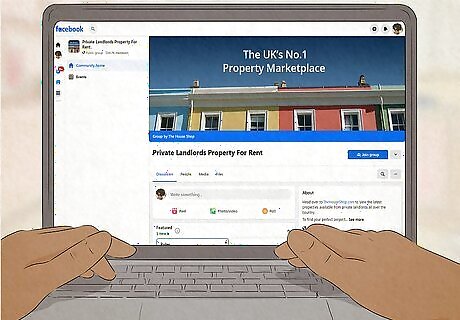
Facebook GroupsThere are plenty of Facebook groups dedicated to connecting prospective renters with private landlords. Here are a few groups to help you get started on your search: Private Landlords Property for Rent Houses for Rent by Private Owners Houses to Rent/Low Income

Hotpads.comEnter your location, price range, and room preferences on Hotpads’ homepage to get redirected to a customized results page. In the “All filters” section at the top of the page, select the “For rent by owner” option to see all the private rental options in your area.
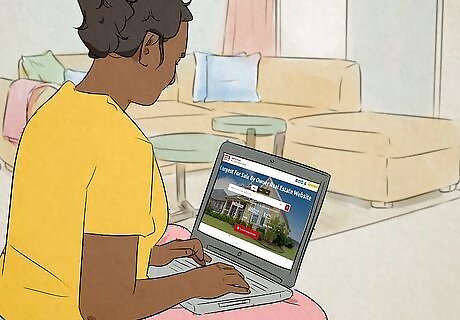
ByOwnerEnter your location on ByOwner’s homepage, along with your more specific rental preferences (rent range, number of bedrooms, etc.). All of the property listings on this site are For Rent By Owner (FRBO), so you can be confident that you’ll find a listing from a private landlord.

“For Rent” signs in neighborhoodsDo you have your heart set on a general neighborhood you’d like to move to? Drive or walk through that area and see if you can spot any “For Rent” signs in the lawns. If you find one, there’s a good chance that a private landlord is renting out the property.

CraigslistHit the “apts/housing” option under the “housing” category on the Craiglist homepage. Both private and corporate landlords post listings on this site, so take a look at each individual listing to see who’s renting it out. Like other rental listing sites, Craiglist lets you sort your results by price, location, and other specifications. Warning: Craiglist especially is well-known for its share of scams and rip-offs. Double-check the listing and make sure that it’s not a scam before you reach out. Be on the lookout for listings that seem too good to be true, or where the landlord is “out of the area” and unable to be met in person.

ZillowHead over to Zillow’s website and type in your location, along with a rental price range that’s comfortable for you. While Zillow doesn’t let you sort your results by private vs. corporate landlords, they do provide an exhaustive list of rentals in your area (including ones offered by private landlords). With a little digging, you may find the perfect property that’s offered by a private landlord. Tip: Corporately-owned properties are typically listed by a property management group, while privately-owned properties have labels like “no broker fee.”
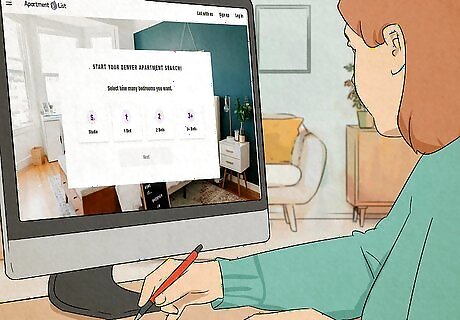
Apartment ListFill out Apartment List’s exhaustive survey—it’ll pop up as soon as you enter your location on the site. From there, answer all the provided questions about your apartment preferences, like your ideal rent range, your estimated move-in date, your pet status, and so on. Although the site won’t sort your listings by private vs. corporate landlords, you can find the private listings with a little extra diligence and research. Click on each individual listing and see who’s renting it out. Private landlords will likely post their name and contact info.
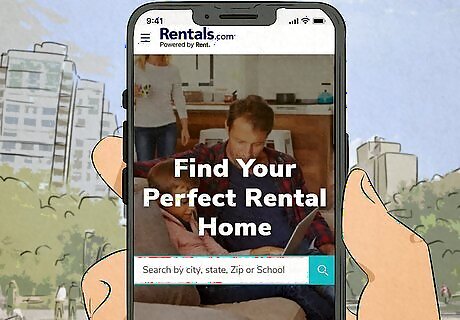
Rentals.comType in your location on the Rentals.com homepage and scope out the list of rentals in your area. Each listing clearly states who manages the property (a person versus a property management group), so you can easily rule out any corporate rental listings.

TruliaType your location onto Trulia’s homepage and take a look at the listings in your area. Trulia features both corporate and private listings, so use their built-in search parameters to narrow down the type of property you’re looking for. From there, inspect each listing to see who the landlord is.

Other social media platformsBelieve it or not, private landlords use a variety of social media platforms (besides Facebook) to promote their rental listings. Search for terms like “private rental” or “private landlord” on platforms like Instagram, TikTok, Pinterest, and Twitter—you might be pleasantly surprised by what you find!
Pros & Cons of Private Landlords

Pro: Renting with a private landlord can offer extra flexibility.Renting with a property group can come with a lot of bells and whistles, such as an in-depth lease and a credit score check. Renting with a private landlord, however, often makes it easier to skip over a lot of the extra paperwork, contracts, and fine print that are commonly associated with corporate landlords. Let’s say that you’d like to adopt a dog—a corporately managed property will have hard, non-negotiable terms on pets, while a private landlord can more easily make an exception. Renting with a private landlord may also be more accessible if you’re struggling with issues like poor credit, past evictions, or prior financial issues.

Pro: You might not have to pay as much.Corporately-owned rentals do tend to offer more amenities (like an on-site gym or pool), but these extra perks can jack up your rent overall. Private rentals don’t always have these same amenities, which may lower your monthly bill. Private landlords might also be more willing to negotiate with you on lower rent. For instance, they might chop off part of your rent in exchange for your help with yard work.

Pro: It might be easier to get in touch with private landlords.Maintenance requests can be tricky when you’re renting from a larger property group—there’s often some type of form involved, and the process can get convoluted. Private landlords, on the other hand, tend to be easier to reach if anything should go wrong on the property.

Con: Some private landlords may work with property management groups. In some situations, your landlord isn’t your main point of contact, even if they officially own the property. Instead, you’re force to correspond with a property management group if you have any issues or questions, which can be a big inconvenience.
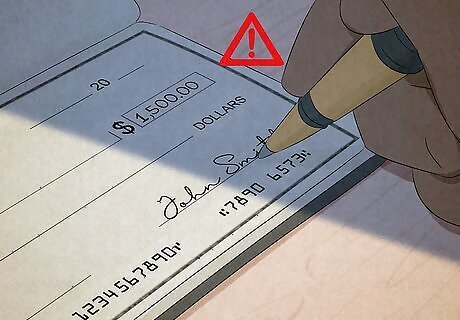
Con: Paying rent might not be as straightforward.Corporately-owned properties often offer simple ways to pay rent, like through a website. With a private landlord, you may be stuck filling out a check every month, which definitely isn’t convenient.

Con: You might have to wait longer for maintenance repairs. Sure, it’s not necessarily hard to get in touch with a private landlord about a maintenance issue—but how long will it actually take them to fix the problem? Since the landlord personally owns the property, they might be a little stingy with repairs, or simply put the repairs on the back burner. A corporately-owned property will likely respond more quickly to your request.
Ways to Avoid Rental Scams
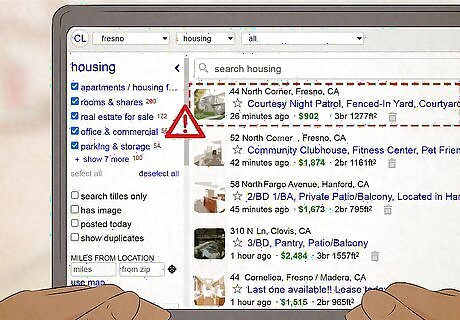
Compare the rental price to other listings.Scroll through rental sites to get a rough idea of what the average rent looks like for that type of property. Does the listing you found fall within that range, or does it seem too good to be true? If the rent seems absurdly low, it’s likely a scam. Let’s say that 2-bedroom apartment goes for $1,700 in a nice neighborhood. If you find an apartment for $1,100 that claims to have all the same perks and amenities as a $1,700 option, it’s probably a scam listing.

Ask to meet the private landlord and see the property in person. If the rental is legit, the landlord will meet up with you to show off the property and answer any of your questions. If they refuse to meet up or claim to be out of the country, just walk away—there’s a good chance that you’re getting scammed. Some scammers really commit to the bit by getting fake keys made for the place that they’ll send your way via a third party (like a “lawyer”). If the landlord won’t meet and work with you directly, don’t bother with them.
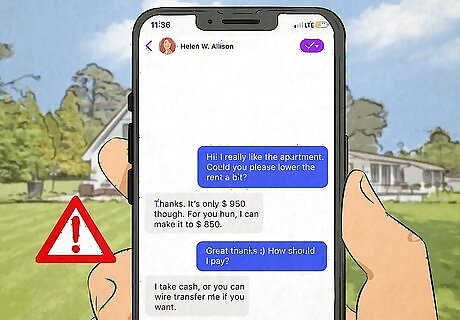
Walk away if they ask for a wired payment.Any credible landlord will ask for a credible payment source, like a check. People who ask for cash, wire transfers, or gift cards as forms of payment are definitely scammers.




















Comments
0 comment